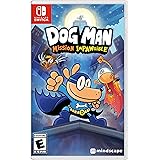The year 2021 promised to be a landmark period for PC gaming, delivering an incredible array of titles that catered to every imaginable taste. Looking back, it’s clear the enthusiasm for these upcoming releases was palpable, fueling discussions across forums and gaming communities. As the video above expertly outlines, we were on the cusp of experiencing innovative new IPs, long-awaited sequels, and stunning remakes that redefined beloved classics. Delving deeper into this exciting lineup reveals why so many gamers eagerly awaited their arrival, from gritty stealth adventures to sprawling sci-fi epics and terrifying survival horrors.
The anticipation for these games wasn’t just about cutting-edge graphics or revolutionary mechanics; it was about the stories they promised to tell, the worlds they invited us to explore, and the experiences they offered to share with friends. Each announcement sparked discussions about developer pedigree, potential narrative directions, and how these titles would shape the future of their respective genres. This article expands on the highlights from that exciting calendar, providing further context and insights into what made each of these upcoming PC games so eagerly anticipated.
Highly Anticipated PC Games: Early 2021’s Powerhouses
The start of the year burst forth with several high-profile releases, immediately setting a high bar for the months to come. These titles leveraged established franchises or introduced fresh takes on popular genres, capturing the attention of a wide PC gaming audience. Each launch carried significant expectations, aiming to deliver memorable experiences right out of the gate.
Hitman 3: The Dramatic Conclusion
IO Interactive’s Hitman 3 arrived on January 20, 2021, marking the dramatic finale to the “World of Assassination” trilogy. Players stepped back into the impeccably tailored suit of Agent 47 for his most important contracts yet, venturing into new, meticulously designed sandbox locations. This installment perfected the series’ signature blend of stealth action, allowing players unparalleled freedom to eliminate targets with surgical precision or ingenious, often comedic, environmental traps. The game’s intricate level design and robust replayability ensured that every assassination attempt felt fresh, encouraging experimentation and mastery over its complex systems.
Prince of Persia: The Sands of Time Remake
Ubisoft sought to rekindle nostalgia with the Prince of Persia: The Sands of Time Remake, initially slated for January 21, 2021. While its initial art direction drew some polarizing opinions, the core promise of revitalizing the beloved 2003 original was clear. This remake aimed to enhance the classic platforming, puzzle-solving, and time-bending combat with improved visuals and modernized controls, immersing players deeper into the Prince’s journey and his relationship with Farah. Expanding the mythos of the Sands of Time was a key goal, promising new surprises for both veteran fans and newcomers to this fabled IP.
Outriders: A New Co-op Shooter RPG
Square Enix and People Can Fly introduced Outriders on February 2, 2021, a robust third-person shooter RPG designed around cooperative play. This title offered a distinct take on the looter-shooter genre, blending intense gunplay with powerful, class-based abilities and a dark sci-fi narrative set on a hostile alien planet. The game embraced a “drop-in, drop-out” multiplayer model, allowing up to three players to team up, craft powerful weapons, and adapt to its harsh dystopian environment. Its blend of satisfying combat and deep customization provided a refreshing experience for fans of both shooters and RPGs.
Little Nightmares II: A Terrifying Sequel
Tarsier Studios continued their unsettling narrative with Little Nightmares II, releasing on February 11, 2021. This sequel transcended the original’s creepy atmosphere by introducing a new playable character, Mono, who journeys alongside Six, the iconic yellow-coat girl, through even more nightmarish places. The game expanded on the lore and introduced new threats and environmental puzzles, pushing players to uncover deeper mysteries within its surreal, fear-inducing world. Its unique art style and psychological horror elements solidified its place as a standout platformer.
Far Cry 6: Revolution in Yara
Ubisoft’s renowned open-world first-person shooter series continued with Far Cry 6, arriving in March 2021, taking players to the fictional Caribbean island of Yara. This installment tasked players with leading a band of freedom fighters to overthrow the tyrannical dictator Anton Castillo, portrayed by Giancarlo Esposito. While initial gameplay details were scarce, cinematic trailers promised an emotionally charged narrative, exploring themes of revolution and resistance. The game maintained the series’ signature blend of explosive action, vast exploration, and dynamic world interaction, giving players a massive playground for insurgency.
Strategic Depths and Sci-Fi Sagas: Mid-2021 and Beyond
As the year progressed, the PC gaming landscape widened, embracing grand strategy, remastered classics, and gritty horror. Developers aimed for both broad appeal and niche perfection, showcasing the diversity available to players.
Humankind: Reimagining History
Amplitude Studios, known for their impressive 4X fantasy strategy game Endless Legend, ventured into human history with Humankind, launching in April 2021. This ambitious title offered a revolutionary approach to the 4X genre by allowing players to evolve their civilization through six different eras, dynamically merging cultures as they progress. Instead of being confined to a single civilization like in the popular Civ series, players crafted a unique culture by blending historical empires, leading to an unprecedented level of strategic depth and replayability.
Mass Effect: Legendary Edition
BioWare’s long-rumored collection, Mass Effect: Legendary Edition, became official and released in Spring 2021. This remastered treatment brought the entire beloved sci-fi trilogy to modern platforms with upgraded visuals, improved gameplay, and all previously released DLC. Fans could relive Commander Shepard’s epic journey to save the galaxy, encountering fan-favorite characters and making pivotal choices that shaped the narrative. The collection’s release also stirred excitement for the confirmation that a new Mass Effect title was indeed in the works, promising future adventures in this cherished universe.
Darkest Dungeon II: The Madness Continues
Red Hook Studios continued their distinctive roguelike RPG with Darkest Dungeon II, which entered early access in 2021. This sequel plunged troubled characters back into a journey against cosmic horrors, transitioning to a striking 3D art style while retaining the core tenets of its challenging predecessor. Players managed a stagecoach and a roster of heroes, navigating a brutal and unforgiving world where sanity was as precious as health. The game deepened its stress-management mechanics and narrative focus, promising a fresh yet familiar quest into oblivion.
Scorn: A Biomechanical Nightmare
Ebb Software’s Scorn offered a truly unique kind of horror in 2021, deeply influenced by the unsettling biomechanical art of H.R. Giger and Lovecraftian dread. This first-person survival shooter immersed players in a vast, labyrinthine world where every surface felt alive and hostile. The game’s “full-body awareness” feature added an unparalleled level of immersion, making every interaction, from reloading a weapon to manipulating grotesque machinery, viscerally impactful. It was a journey into a nightmarish dimension that defied conventional horror tropes.
The Ascent: Cyberpunk Chaos
Neon Giant delivered their isometric action RPG, The Ascent, in 2021, a stunning take on the cyberpunk genre. Players navigated a massive, densely packed arcology after the collapse of its corporate overlords, fighting for survival against gangs, police, and hostile mega-corporations. Available for solo or co-op play, the game combined satisfying top-down shooting with deep RPG mechanics, allowing players to shoot and loot their way to freedom. Its vibrant neon aesthetic and detailed world-building made it a standout entry in the cyberpunk renaissance.
Hogwarts Legacy: The Wizarding World RPG
The long-awaited dream of many Potterheads came true with Hogwarts Legacy, a full-fledged action RPG set within the halls of Hogwarts, slated for 2021. This title allowed players to create their own wizard or witch, get sorted into a house, craft potions, and cast spells within an expansive open world. Set in the 1800s, long before Harry Potter’s era, the game offered an original story that allowed players to shape their own legacy and explore familiar locations with a fresh perspective. It offered an unparalleled level of player agency within the beloved wizarding world.
Vampire: The Masquerade – Bloodlines 2
Following its cult classic predecessor from 2004, Vampire: The Masquerade – Bloodlines 2 aimed to immerse players in the modern underworld gloom of nighttime Seattle. Despite numerous delays, the promise of engaging in vampiric adventures in the 21st century kept fans hopeful for its 2021 release. This RPG focused on tough moral choices, branching storylines, and intricate faction dynamics, allowing players to carve out their place in the shadowy World of Darkness. It was set to deliver a deeply atmospheric and narrative-driven experience.
Syberia: The World Before
Kate Walker’s next globe-trotting adventure continued in Syberia: The World Before, expected in 2021. This installment in the beloved adventure series promised even grander mysteries and stunning atmospheric worlds across the vast European continent. The game interwove two distinct timelines, allowing players to explore both past and present to uncover a profound narrative. Its rich storytelling, intricate puzzles, and breathtaking artistic direction continued the legacy of the late Benoît Sokal.
S.T.A.L.K.E.R. 2: Heart of Chernobyl
After a decade, the sequel to the classic post-nuclear shooter, S.T.A.A.K.E.R. 2, was finally on the horizon for 2021 as a Microsoft exclusive. This first-person shooter pushed immersion to new levels, dropping players into a massive, irradiated open-world wasteland known as the Chornobyl Exclusion Zone. With fresh mechanics and a non-linear narrative, the journey through this dangerous landscape was far from a walk in the park. It promised an unforgiving survival experience blended with a deep, branching story.
Resident Evil Village: European Horrors
The Resident Evil series made a terrifying comeback with Resident Evil Village, released in 2021, sticking to its established first-person formula. Ethan Winters returned as the protagonist, venturing into an uncharted European village teeming with monstrous creatures, including witches and werewolves. The survival horror elements received a massive upgrade, ensuring players would constantly feel anxiety and fear in each passing moment. Its captivating setting, memorable characters, and intense combat solidified its place as a high point in modern horror gaming.
Gotham Knights: The Bat-Family Rises
From the team behind Arkham Origins, Gotham Knights was slated for a 2021 release, introducing an exciting online co-op mode to the Batman universe. With Batman seemingly gone, players took on the roles of Nightwing, Batgirl, Robin, and Red Hood, exploring a vibrant, crime-ridden Gotham City like never before. The game focused on the Bat-Family teaming up to stop the resurgence of the Cape Crusader’s most formidable enemies, offering a fresh narrative perspective and dynamic combat mechanics for up to two players.
The Outlast Trials: Multiplayer Terror
Red Barrels’ next chapter in their frightening survival horror series, The Outlast Trials, brought multiplayer terror to the forefront. Slated for 2021, this game allowed players to suffer alongside friends in a series of challenging gauntlets, all in an effort to escape a sadistic Cold War-era facility. While details were scarce, the promise of collaborative psychological horror within the notoriously brutal Outlast universe was enough to generate immense buzz and anticipate “pants-wetting” fear.
Future Frontiers: Beyond 2021’s Horizon
Some of the most monumental announcements extended beyond 2021, hinting at a transformative future for PC gaming. These titles, often revealed with minimal details, ignited massive speculation and demonstrated the industry’s ambitious trajectory.
Halo Infinite: A New Era for Master Chief
343 Industries aimed to redefine Master Chief’s action-packed space opera with Halo Infinite. While initially a launch title for Microsoft’s latest console, its eventual 2021 release expanded the world with a bigger, more open environment to explore. Despite mixed reactions to early gameplay footage, the promise of a vast, dynamic Zeta Halo and a return to the series’ iconic sandbox gameplay kept anticipation incredibly high. It was poised to be a pivotal title for the future of the Halo franchise.
Diablo 4: A Return to Darkness
Blizzard Entertainment confirmed Diablo 4, marking a long-awaited fourth installment to their iconic ARPG series. While details were scarce, the game promised a return to the darker, more gothic roots of the franchise, revitalizing the isometric gameplay of the previous trilogy with a familiar yet innovative approach to challenging dungeon crawling. The anticipation surrounding BlizzCon events often centered on uncovering more about this ambitious title, promising a vast open world and deeply customizable character classes.
Overwatch 2: Evolving Heroic Combat
Blizzard also announced Overwatch 2, a sequel designed to evolve the popular hero shooter with new characters, game modes, and a dedicated story experience. This title aimed for a bigger audience by introducing significant PvE (Player vs. Environment) story missions, allowing players to delve deeper into the lore of the Overwatch universe. While concrete details on how these changes would fully integrate with the existing PvP framework were awaited, the promise of expanded gameplay and narrative elements generated considerable excitement for its eventual release.
Path of Exile 2: The ARPG Journey Continues
Grinding Gear Games announced Path of Exile 2, a massive follow-up to their critically acclaimed free-to-play ARPG. Known for its extensive character choices and incredibly deep skill trees, this sequel promised to continue that tradition in more ways than one, starting with one of the most creative character selections yet. After suffering a major delay, the developers remained hard at work, aiming to polish their ambitious next chapter, which would be delivered as a massive update to the existing game rather than a standalone title, ensuring a seamless transition for its dedicated player base.
Baldur’s Gate III: A Modern CRPG Epic
Larian Studios, revered for their work on the Divinity: Original Sin series, took on the revival of a classic RPG with Baldur’s Gate III. Available in early access, this latest installment aimed to bring the magic of the Dungeons & Dragons universe to modern audiences, allowing players to choose their classes, build intricate characters, and fight against brain-hungry creatures known as Mind Flayers. The game combined Larian’s tactical turn-based combat with the rich lore and narrative depth of the Baldur’s Gate franchise, proving to be a monumental achievement in the CRPG genre.
Dying Light 2: Stay Human
Techland’s zombie playground, Dying Light 2: Stay Human, captivated audiences with its promise of a definitive sandbox experience driven by player choices. Despite numerous delays, the game focused on giving players unparalleled freedom in a post-apocalyptic urban landscape, blending parkour, combat, and a narrative shaped by critical decisions. The overarching story reacts dynamically to player actions, creating a truly personalized experience in its vast, infected world. Hope for more definitive news about its release date remained high, promising a fresh take on the zombie survival genre.
Hellblade II: Senua’s Saga
Ninja Theory’s critically acclaimed action-adventure series continued with Hellblade II: Senua’s Saga, slated as a Microsoft exclusive. Taking place right after the events of the first game, this sequel featured a vengeful Senua ready to raise hell in a world steeped in Nordic mythology. While concrete information was limited, the game promised to delve deeper into Senua’s psychological journey, leveraging cutting-edge graphics and immersive sound design to deliver a visceral and emotionally powerful experience. It aimed to further explore themes of mental health and self-discovery within a visually stunning world.
Starfield: Bethesda’s New Frontier
With Bethesda now under Microsoft’s ownership, the future of Starfield, their first new IP in over two decades, became clearer. Positioned as their experimental science fiction open-world RPG, it was set to release before the highly anticipated The Elder Scrolls 6. While details remained scarce, Bethesda’s track record for creating expansive, player-driven worlds fueled immense speculation about its scope and ambition. Starfield promised to transport players to the depths of space, offering an uncharted universe brimming with discovery and adventure.









